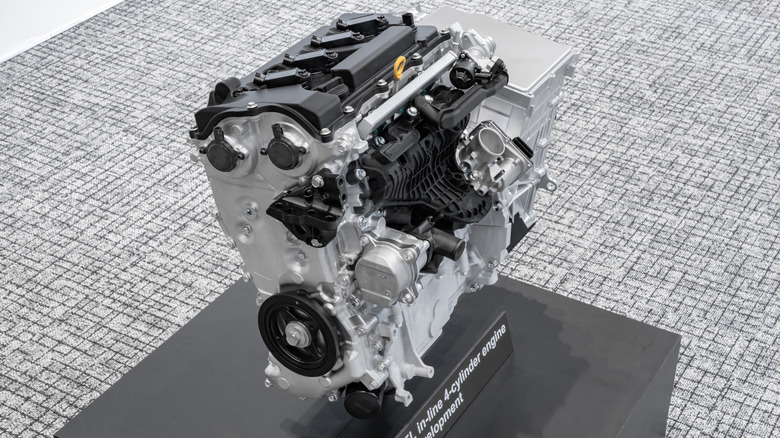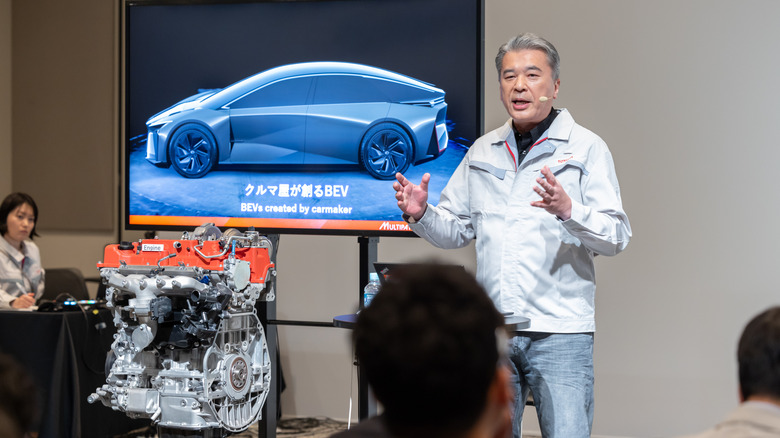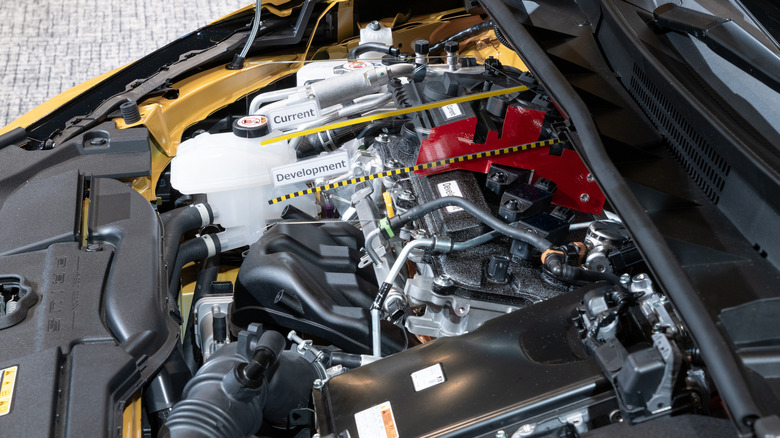Toyota's Next-Gen Combustion Engines – Here's Everything We Know So Far
Japanese automotive giant Toyota has built some of the most impressive engines ever. Known for their indestructibility, smooth power delivery, fuel efficiency, and excellent tunability, these motors have earned the company a legendary reputation around the globe. An example of these special engines includes the iconic 2JZ-GTE, which powered the mighty A80 Toyota Supra, and the UZ-series V8s that debuted in the first-gen Lexus LS400.
Most automakers have slowed down or halted the development of new internal combustion engines (ICE) to focus on electric vehicles (EVs). However, Toyota is taking a different route, doubling down on new fuel-efficient hybrid powertrains, hydrogen fuel cells, and a game-changing liquid hydrogen engine. With the EV market currently facing a slowdown and competition intensifying, the company's strategy to extend the life of ICE through advanced hybrids is proving to be a clever move while offering limited fully electric vehicles like the bZ4X BEV. Hybrids, on the other hand, are more popular than ever, especially among consumers not yet ready for a full EV transition.
To capitalize on this transitional phase while extending the life of ICE, Toyota announced it would create a new series of four-cylinder engines. It is also partnering with Subaru and Mazda to co-develop a range of highly efficient, power-dense, low-emission, and versatile combustion engines. It's still unclear which engines will be shared among the three automakers. However, each will have its signature engine: an inline-four cylinder for Toyota, a boxer-four cylinder for Subaru, and a rotary engine for Mazda.
What we know about Toyota's new engine lineup
Toyota's next-generation engines will come in 1.5-liter and 2.0-liter configurations. These units will use lightweight materials and offer impressive performance in compact packages. At the 2025 Tokyo Auto Salon, the company unveiled the 2.0-liter G20E in the GR Yaris M concept . This turbocharged four-cylinder engine was capable of producing around 400 horsepower, but it's said to have the potential of reaching up to 600 horsepower in its most aggressive form.
Toyota is a pioneer in hybrid vehicles, having some of the most fuel-efficient cars on sale today. So, these engines are likely being developed with hybrid integration in mind. Each automaker is expected to implement its own unique hybrid system, including motors, battery packs, and transmissions. Moreover, the new engines are designed to support both transverse and longitudinal layouts, making them suitable for front, rear, and all-wheel-drive applications across a variety of body styles as well as front, rear, and mid-engine layouts. That's also great news for tuners — a powerful, versatile, and reliable motor can be great for doing engine swaps. Lastly, the new engines will be designed to run on regular fuel as well as biofuels, synthetic fuels, and flex-fuels.
How do they compare to current engines?
The upcoming naturally aspirated 1.5-liter engine is approximately 10% smaller in volume and height and 10% lighter than the outgoing version. The turbocharged variant of the 1.5-liter motor is 20% smaller in volume and 15% shorter than the widely used 2.5-liter engine, while supposedly also being 30% more efficient and capable of similar power. For context, several of Toyota's hybrid cars with the best mpg feature a 2.5-liter engine and get over 200 horsepower.
The range-topping 2.0-liter four-cylinder engine is rumored to be capable of producing up to 600 horsepower, surpassing even Mercedes-AMG's M139 unit, which currently holds the record for the most powerful production four-cylinder engine at 469 horsepower in the Mercedes-Benz AMG C63 S E Performance. These new powertrains are expected to debut in upcoming performance models such as the next-gen Toyota Celica and potentially a successor to the much-anticipated MR2 sports car.


